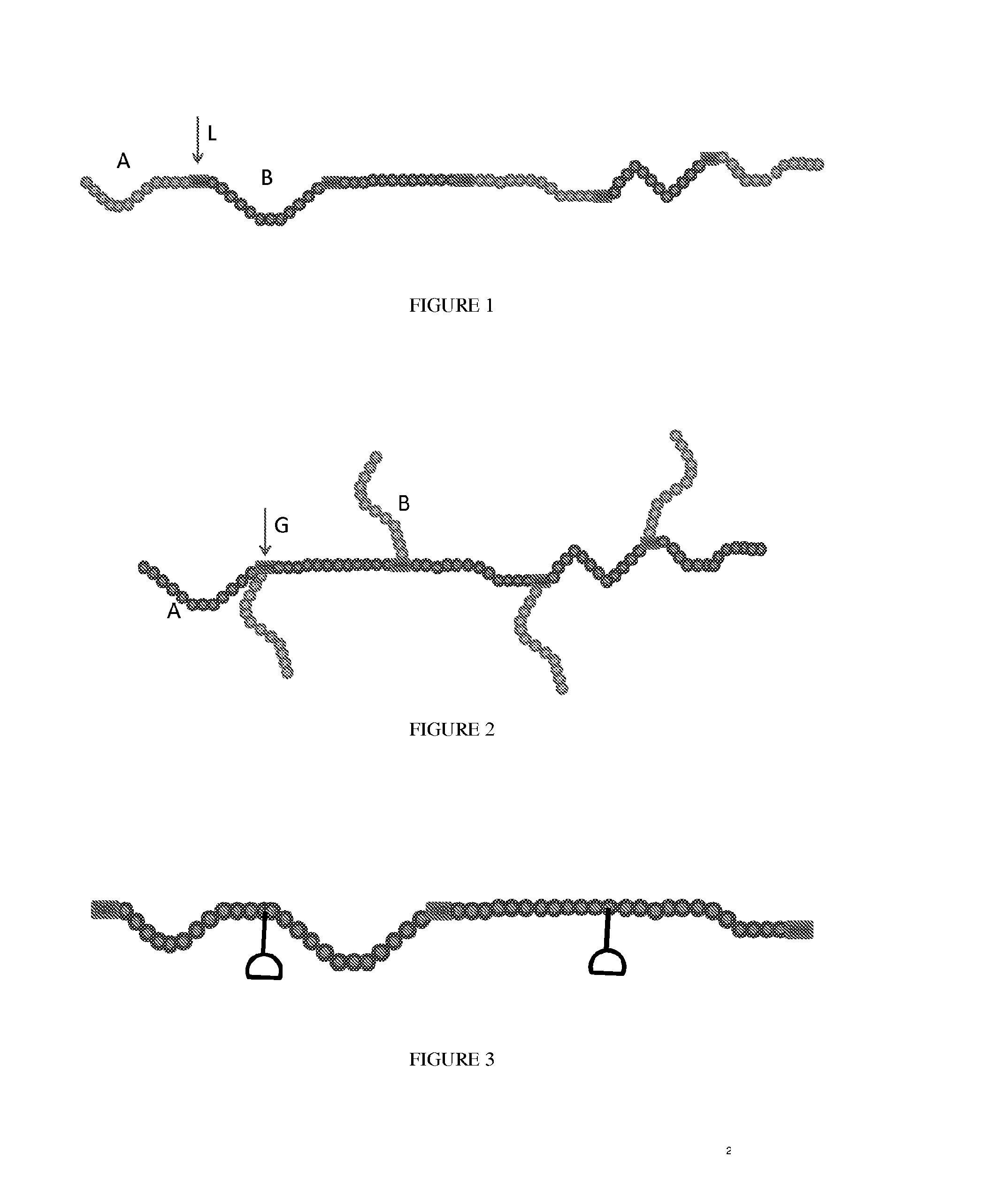Reversible Shape Memory Polymers Exhibiting Ambient Actuation Triggering
a memory polymer and ambient actuation technology, applied in the field of shape memory polymers, can solve the problems of limited recoverable strains less than 8%, high cost, inherently high stiffness, etc., and achieve the effect of minimal undercooling
- Summary
- Abstract
- Description
- Claims
- Application Information
AI Technical Summary
Benefits of technology
Problems solved by technology
Method used
Image
Examples
Embodiment Construction
[0013]Referring now to the drawings, wherein like reference numerals refer to like parts throughout, there is seen in FIG. 1 a schematic a multiblock approach to synthesizing a shape memory polymer according to the present invention. The multiblock polymer of FIG. 1 consists of two (or potentially more) blocks in which the “A” block is the crystalline switching block with relatively low melting transitions, the “B” block with a higher thermal transition (Tg or Tm), and the two are linked together by a linker molecule, “L”. This multiblock polymer can be prepared by known polymer chemistry and using commercially available or easily synthesized “A” and “B” blocks. For example, the primary synthetic variables include: the composition and molecular weight of each block, the weight percentage of the “B” block, wB (noting wA+wB=100%), and the total molecular weight of the multiblock polymer. It is recognized that the composition and molecular weight of each block will impact their melting...
PUM
| Property | Measurement | Unit |
|---|---|---|
| first melting transition temperature | aaaaa | aaaaa |
| melting transition temperature | aaaaa | aaaaa |
| melting transition temperature | aaaaa | aaaaa |
Abstract
Description
Claims
Application Information
 Login to View More
Login to View More - R&D
- Intellectual Property
- Life Sciences
- Materials
- Tech Scout
- Unparalleled Data Quality
- Higher Quality Content
- 60% Fewer Hallucinations
Browse by: Latest US Patents, China's latest patents, Technical Efficacy Thesaurus, Application Domain, Technology Topic, Popular Technical Reports.
© 2025 PatSnap. All rights reserved.Legal|Privacy policy|Modern Slavery Act Transparency Statement|Sitemap|About US| Contact US: help@patsnap.com

